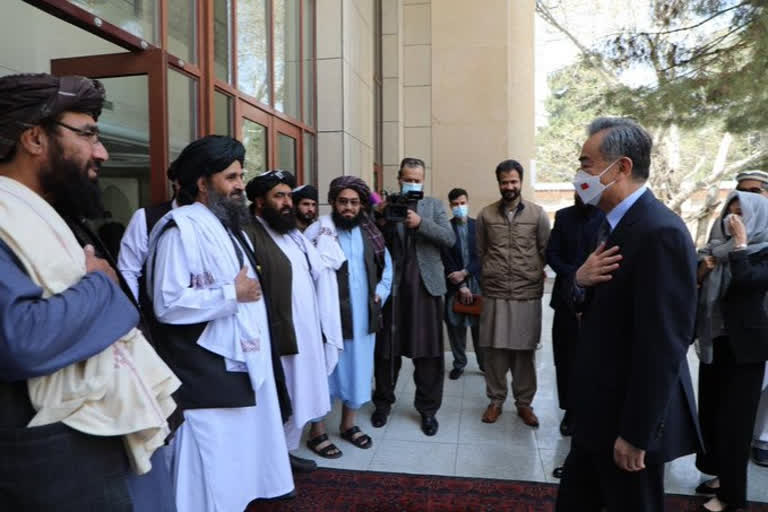New Delhi: The sudden and unannounced visit of Chinese foreign minister and state counsellor Wang Yi to Kabul on Thursday-just after his two-day official visit to Islamabad to attend the OIC (Organisation of Islamic Cooperation) meet and on the eve of his visit to New Delhi—underlines the importance China attaches to the mineral riches that Afghanistan has huge reserves of.
While China boasts of modern state-of-the-art extractive techniques, Afghanistan lacks a modern mining industry and the associated infrastructure that is poorly regulated. The Chinese minister met his Afghan counterpart Mawlawi Amir Khan Muttaqi at the Stor Palace in Kabul and discussed a range of issues including the all-important one of commencing work in the mining sector.
On Thursday, the office of Mullah Abdul Ghani Baradar, Afghanistan’s first deputy prime minister, said that minister Wang in his meeting with Baradar expressed China’s readiness to invest in mining and economic projects and to resume work at the Mes Aynak copper mine. The Mes Aynak copper mine—located about 30 km from Kabul in Logar province—is Afghanistan’s largest and is estimated to hold copper resources estimated at more than 11 million tonnes and worth more than $100 billion.
China’s mining majors Metallurgical Corp of China (MCC) and Jiangxi Copper inked a 30-year lease for the Mes Aynak copper mine in 2008 but couldn’t undertake substantial operations due to the unstable and civil war-like situation in the country. With the Taliban coming back to power in August 2021 after the short and swift summer offensive, the Chinese are keen to resume work on the project based on terms and conditions laid down the 2008 agreement and have accordingly sent delegations to meet the ruling regime in Kabul.
It is no secret that China covets Afghanistan’s natural endowments of rare earth like lithium and copper while the cash-starved Taliban government in Kabul is looking at all possible ways to garner resources to fund the administration and governance of the war-hit country. Not only is Afghanistan well-known for its bountiful deposits of copper, iron-ore, gold, precious stones, and for natural gas and hydrocarbon deposits, but its deposits of rare earth minerals are believed to be colossal.
A recent report in the state-owned mouthpiece ‘Global Times’ had said that while five Chinese companies have already posted representatives and officials in Taliban-ruled Afghanistan, more than 20 other Chinese state-owned and private companies have expressed interest in the mining of lithium. The much-sought-after lithium reserves in Afghanistan are estimated to be worth more than $1 trillion, rivalling Bolivia’s reserves.
Indispensable in making batteries of electric vehicles (EV), lithium is used in the batteries of laptops and cell phones, as well as in the glass and ceramics industry. The value of lithium has multiplied manifold with the world being said to be on the verge of a EV revolution. While China does not possess significant deposits of lithium, it has most of the world’s lithium-processing facilities that churn out nearly two-thirds of the world’s lithium-ion batteries.
Significantly, China has constructed a 50-km-long road link to Afghanistan whose construction began in 2020, which links the Wakhwan Corridor with China’s Xinjiang province. The road—which can be a vital catalyst in the transporting of minerals—begins at Bozai Gumbaz, at 3,840 metres, and passes through the 4,923-metre-high Wakhjir pass, one of the two access points along the about 90-km-long border between China and Afghanistan, before opening up in the Chalachigu or Kara-chukur Valley in Kashgar Prefecture, Xinjiang, China.



